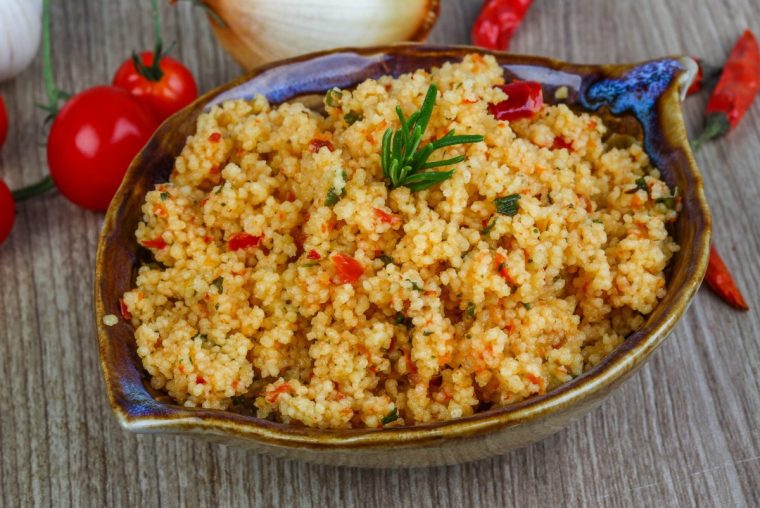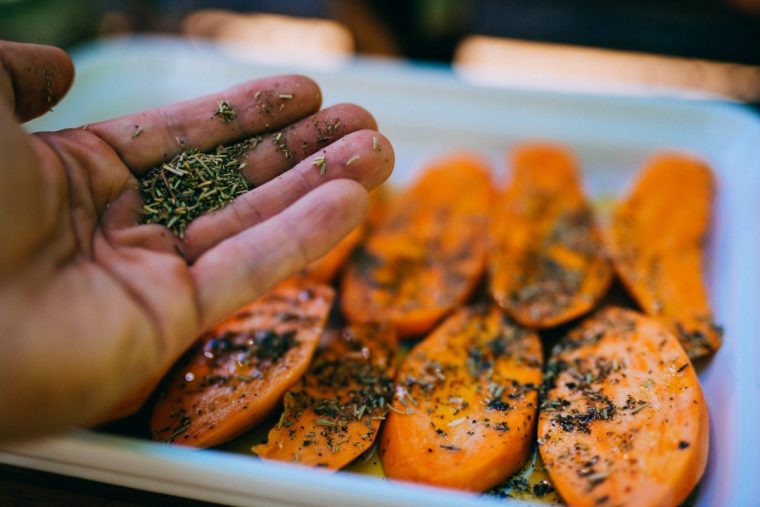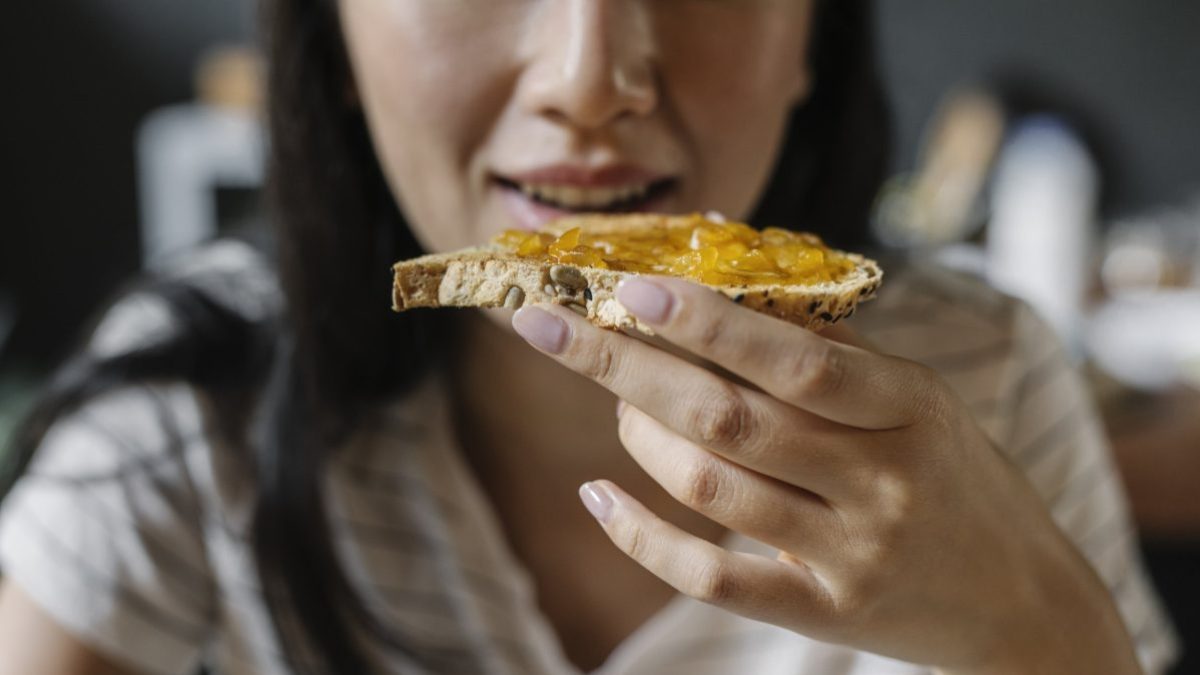Carbohydrates are often demonised but we need them for energy, and they can be healthy. The experts give their verdicts on the ones we should eat
After decades of debate and scientific research, people still can’t make up their minds about carbohydrates. We know that they’re an important part of a healthy and balanced diet because they give us the energy we need in our day-to-day lives. But foods like bread, pasta and potatoes are also often the first thing people cut out or reduce in their diets if they’re trying to lose weight or eat more healthily.
Dietitian Emma Shafquat thinks carbohydrates are often “unfairly demonised” – especially healthy, minimally processed types, which not only keep us fuller for longer, but also provide fibre and important vitamins and minerals such as iron and B vitamins.
The ‘right’ kinds of carbs include wholegrains such as brown rice, oats and quinoa. Shafquat says these foods fill you up but also contain higher levels of fibre, B vitamins, iron and selenium than refined or white carbs like white bread, white rice or pasta, which have often had these nutrients removed during processing.
 Couscous is high in selenium, an antioxidant that supports immune function (Photo: Teo Musat/Getty)
Couscous is high in selenium, an antioxidant that supports immune function (Photo: Teo Musat/Getty)
Here, expert dietitians and nutritionists reveal the carbohydrates they always have in their kitchens.
1. Sourdough
Nichola Ludlam-Raine, dietitian and author of How Not to Eat Ultra-Processed, eats sourdough almost every day, either for breakfast with nut butter, sliced banana and cinnamon, or for lunch with avocado or hummus, sliced tomato and eggs.
“Unlike regular white bread, sourdough is fermented, which makes it easier to digest and may be gentler on blood sugar levels due to its lower glycaemic index,” she says. Ludlam-Raine says she recommends sourdough to clients “whether topped with mackerel tinned in tomatoes, or served alongside soup or salad”.
Real sourdough is made from flour, water and salt, so if you’re not sure how to find it on the bread shelves, always check the ingredients label for yeast and additives first.
2. Oats
Dietitian Lizzie Sanchez from Green Health Dietetics says oats are a cupboard essential she always keeps stocked up in her home. “They’re a fantastic source of complex carbohydrates and soluble fibre – especially beta-glucan, which helps support healthy cholesterol and feeds beneficial gut bacteria,” she explains.
She says she usually buys steel cut or rolled oats for convenience. “For those with IBS, oats are also a gentle fibre source that can help support regular digestion without being too hard on your gut. They’re endlessly adaptable and can be used to make some great breakfasts and snacks like, overnight oats with milk and a crunchy nutty topping or healthier flapjacks and biscuits,” Sanchez says.
Along with making porridge, she also adds them to fruit, yoghurt and eggs to boost protein intake.
3. Wholewheat couscous
Shafquat has chosen wholewheat couscous as one of her top high-carb foods. “It’s really high in selenium, an antioxidant that supports immune function, thyroid health, and cell repair. In addition to selenium, wholewheat couscous provides protein and slow-release carbohydrates that can help keep you fuller for longer,” she says.
Wholewheat couscous is great for time-poor parents because it takes just minutes to prepare, making it ideal for mid-week meals, one-pot meals and lunchboxes. Serve it with beans or lentils to make a protein-rich dish.
Shafquat says: “If your child is stuck eating pasta or struggles with the texture of rice, couscous is a great way to introduce more variety and boost overall fibre intake.”
4. Quinoa
Priya Tew, specialist dietitian at Dietitian UK, says quinoa is a delicious healthy high-carb food that is relatively cheap. Technically a seed, she says it’s a good source of fibre and protein and “provides iron, magnesium, folate and zinc as well as some flavonoids which are important antioxidants to help our bodies fight inflammation and damage”.
Quinoa is a great addition to salads if you want to stay fuller for longer and it doesn’t contain any gluten, making it popular with people on a gluten-free diet. Tew adds that research suggests quinoa “may help with blood glucose control, with weight and with reducing heart disease risk”.
Tew’s go-to meal is to roast a tray of veggies in olive oil, then stir in some chopped tofu, soy sauce and ginger. Put all of this on top of some cooked quinoa for a make-ahead lunch.
 Sweet potatoes are high in vitamin A, and important for liver, eye, brain and heart health (Photo: Guido Mieth/Getty)5. Bran flakes
Sweet potatoes are high in vitamin A, and important for liver, eye, brain and heart health (Photo: Guido Mieth/Getty)5. Bran flakes
Dr Carrie Ruxton, dietitian and adviser to the General Mills fibre campaign, says she always has a packet of bran flakes in the cupboard as a quick, high carb and fibre-rich breakfast. “A large bowl provides more than a quarter of your daily fibre recommendation. Add a handful of sultanas or sliced banana for another gram of fibre and pour over low-fat milk or oat milk.”
Dr Ruxton says eating more fibre is protective against heart disease and type 2 diabetes, as well as helping you to feel fuller for longer, which supports weight loss, if that’s your goal.
6. Rye bread
Rye is a low GI wholegrain that’s high in complex carbohydrates and dietary fibre – this supports your gut health and leaves you feeling full.
Nutritionist Monica Kranner says “a slice of dense wholegrain rye bread can contain around 15g of carbohydrates, 3-5g of fibre, and 3g of protein”. Kranner recommends rye bread because it also contains important micronutrients such as “manganese, phosphorus, magnesium, and B vitamins, particularly niacin (B3) and folate, which are vital for energy metabolism and cardiovascular health”.
You can eat rye bread with some of the toppings mentioned above by Ludlam-Raine such as avocado, hummus and eggs.
7. Buckwheat
Nutritional therapist Pippa Groves says one of her go-to cupboard carbs is buckwheat. “Despite the name, it’s totally gluten-free and technically a seed, not a grain, but it cooks up just like one,” she explains. “I love it because it’s packed with fibre, magnesium, and slow-release carbs that help keep blood sugar steady and energy levels up.
“It also contains prebiotics that feed your beneficial gut bacteria, and a compound called rutin which is brilliant for heart and skin health,” she says.
Groves uses buckwheat for homemade granola or to make oat-free porridge. “It’s cosy, filling and doesn’t spike your blood sugar the way some breakfast cereals can,” she adds.
“In summer, I’ll batch cook a pot and cool it down to use in salads with shredded chicken, roasted vegetables, chickpeas, and a lemony tahini dressing. It’s got a lovely nutty bite that makes it more satisfying than quinoa or couscous.”
8. Sweet potatoes
Sweet potatoes are a tasty and versatile alternative to white potatoes – they fill you up while providing you with plenty of nutrition. Nutritionist Michaella Mazzoni recommends using this high-carb vegetable for “soups, salads, roasted or even in baking (cakes) if you are feeling adventurous”.
Sweet potatoes are high in vitamin A, which Mazzoni says is important for liver, eye, brain and heart health, as well as an important antioxidant. Sweet potatoes are also a “good source of fibre, which is great for supporting healthy bowel movements and hormones”, she explains.
Sweet potatoes have a lower glycaemic index than white potatoes, about 60 vs 75, adds Mazzoni. “This makes them a good carb option if you are watching your sugars, or managing PCOS, like myself,” she says.
Always consult your GP or a registered dietitian if you have any concerns about your health and how to eat a healthy, balanced diet.
